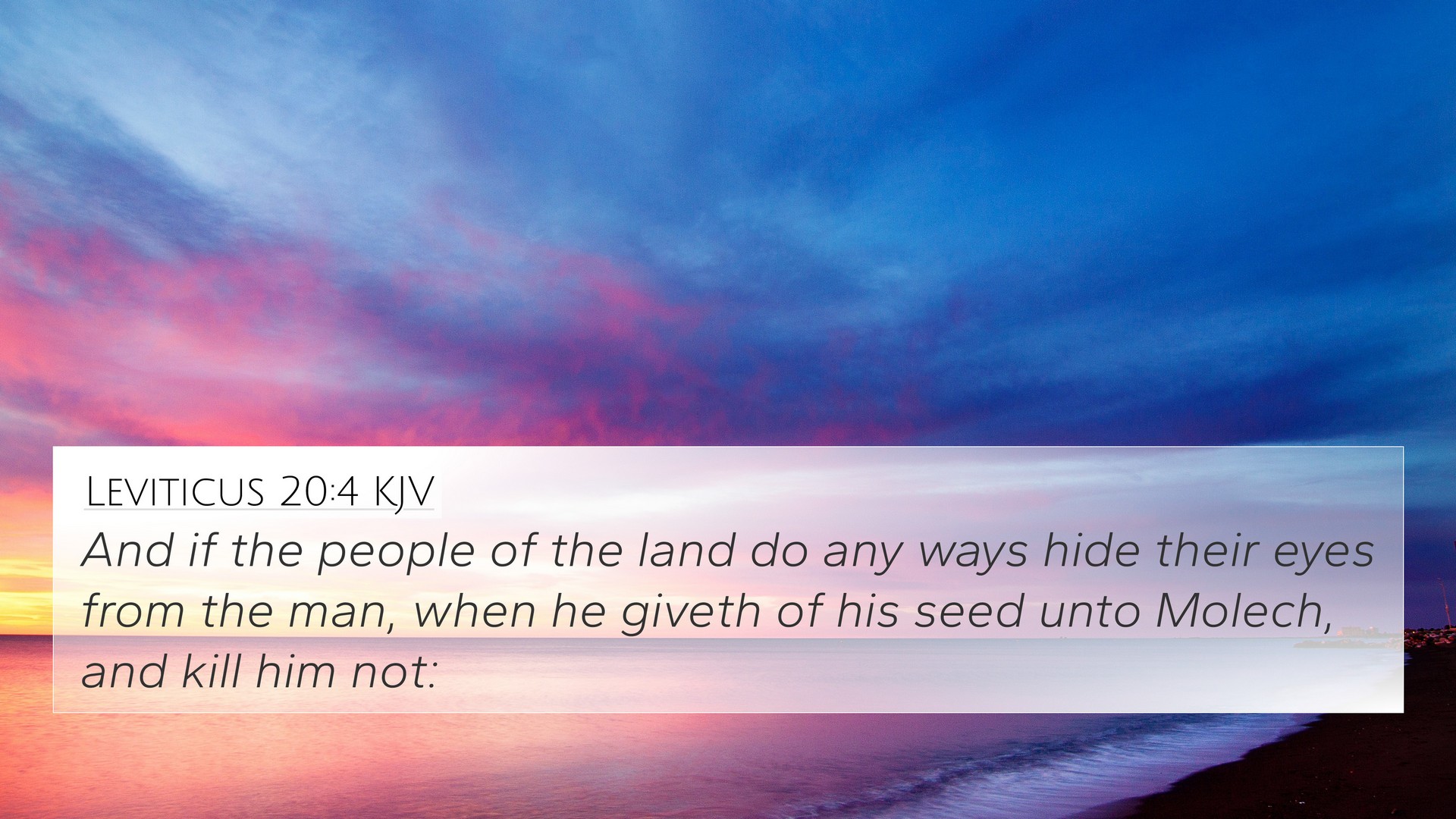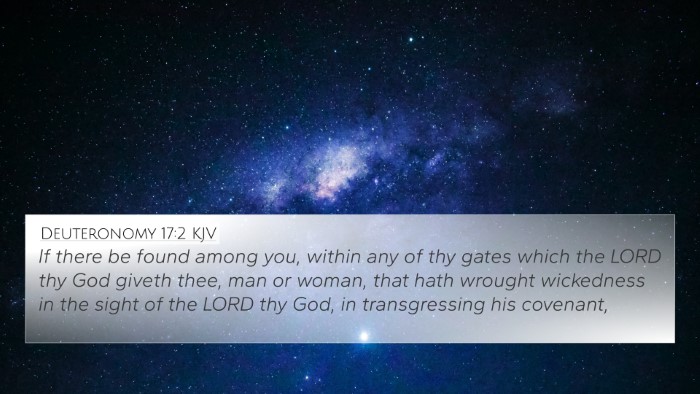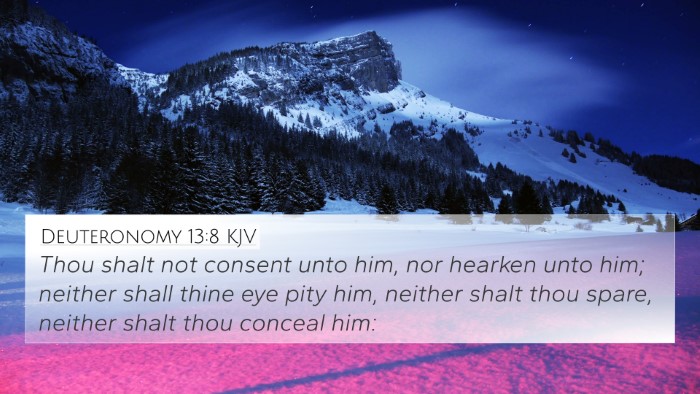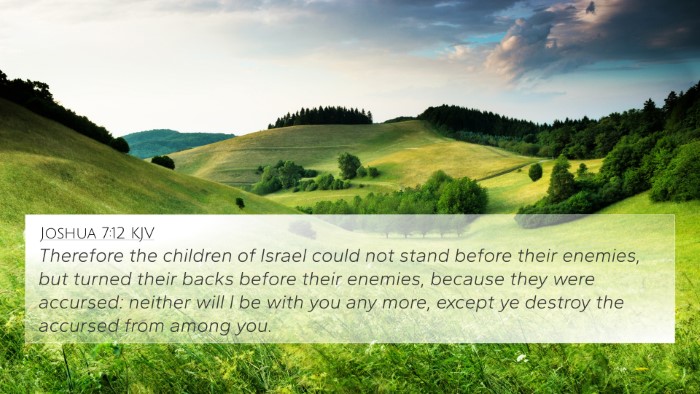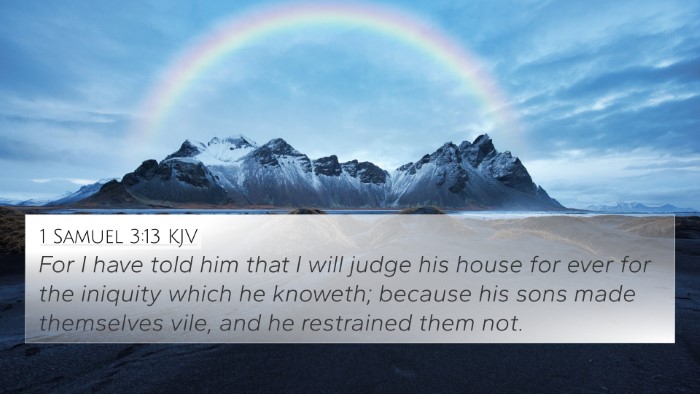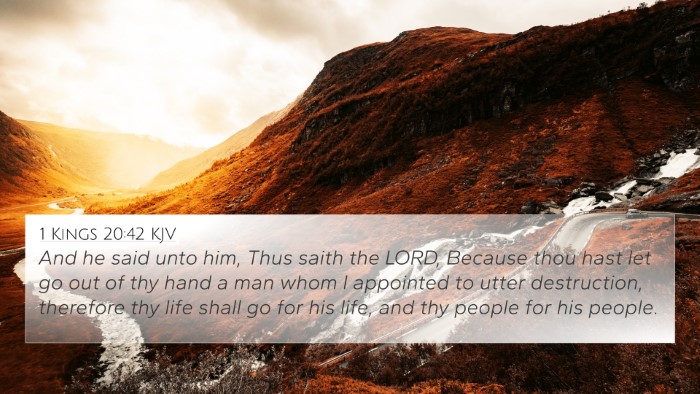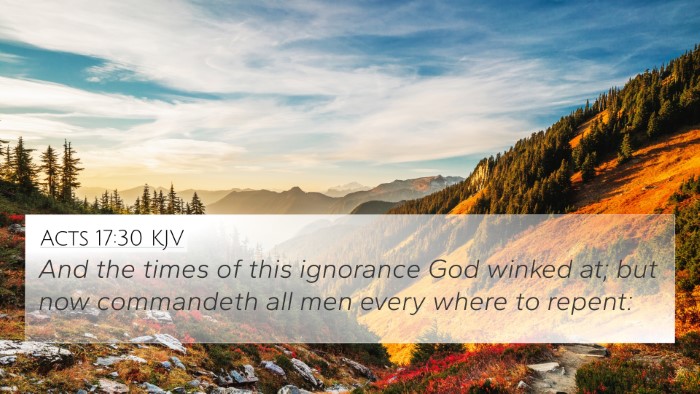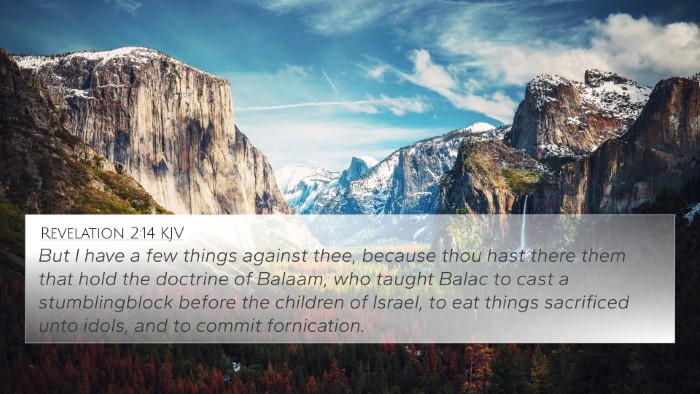Meaning and Interpretation of Leviticus 20:4
Leviticus 20:4 states: "And if the people of the land do any ways hide their eyes from the man, when he giveth of his seed unto Molech, and kill him not:". This verse addresses the serious issue of child sacrifice, particularly in the context of worshipping the pagan god Molech. The Lord establishes strict commands against such practices to uphold the sanctity of life and the worship due to Him alone.
Commentary Insights
-
Matthew Henry:
Henry emphasizes that this verse condemns the act of sacrificing children to idol gods. He points out that those who lead others to compromise their faith by tolerating evil are equally guilty. The verse highlights God's intolerance towards idolatry and the seriousness of hidden sins among the community.
-
Albert Barnes:
Barnes notes that by not killing the person who sacrifices to Molech, the community is complicit in the sin. He explains that God's law demands action against such heinous acts and that neglecting to act is itself an affront to God's holiness.
-
Adam Clarke:
Clarke remarks on the societal implications of allowing such practices to continue. He asserts that the verse cautions against apathy towards evil deeds and the moral decay it brings to society. He also comments on the importance of clear distinctions in worship and behavior, urging believers to remain steadfast against societal pressures.
Cross-References to Leviticus 20:4
- Deuteronomy 18:10-12: This passage explicitly condemns child sacrifices and communicates God’s disapproval of various forms of idolatry.
- 2 Kings 23:10: A king’s reform against Molech worship, illustrating the historical context of these practices in Israel.
- Jeremiah 32:35: This verse mentions the abominable places where children were sacrificed, emphasizing the depth of Israel's sin against God.
- Ezekiel 20:31: Here, God speaks against the detestable practices that the people engage in for their own desires, including child sacrifice.
- Isaiah 57:5: The prophet outlines the vile practices of the people, including child sacrifice, condemning such behaviors as grievous in God's eyes.
- Acts 15:20: In the New Testament, the early church warns against consuming blood and practicing idolatry, showing a continuation of this theme.
- Romans 12:1: Paul advises presenting oneself as a living sacrifice to God, a stark contrast to the sacrifices made to idols.
Thematic Connections
This verse connects deeply with the themes of holiness, the sanctity of life, and the dangers of idolatry that are prevalent throughout Scripture:
- The Holiness of God: God's holiness demands that His people live set apart from pagan practices.
- The Value of Life: The prohibition against child sacrifice emphasizes the divine value of human life created in God’s image.
- Idolatry Awareness: The warning against hidden sins invites believers to scrutinize their lives for idolatrous tendencies.
Cross-Referencing and Comparative Bible Analysis
Engaging in cross-referencing Biblical texts allows for a deeper understanding of Leviticus 20:4 within the broader Canon. This practice unveils connections that span the Old and New Testaments.
Through scriptural cross-referencing, one can identify parallels between different scripture passages that address similar themes of sin, judgment, and repentance:
- Hebrews 10:31: “It is a fearful thing to fall into the hands of the living God,” drawing attention to the seriousness of disobedience.
- Matthew 5:29-30: Here, Jesus emphasizes removing sources of sin, reflecting the need for drastic measures against idolatry.
- Micah 6:7-8: The balance in what the Lord desires is not empty rituals, but justice and faithfulness.
Practical Application and Reflection
Reflecting on Leviticus 20:4 encourages believers to examine their commitments and the influences of modern idolatry. It invites a discussion on:
- The struggles believers face today with distractions and cultural pressures.
- The importance of communal accountability in maintaining a pure worship environment.
- Strategies for resisting societal norms that do not align with Scriptural teachings.
Conclusion
In summary, Leviticus 20:4 serves as a powerful reminder of the sanctity of life and the severity of idol worship. The cross-references and commentaries illuminate the depth of God's command and its relevance across ages.
